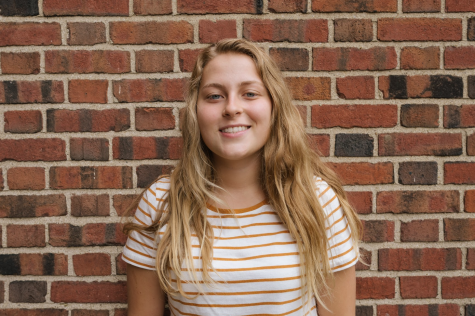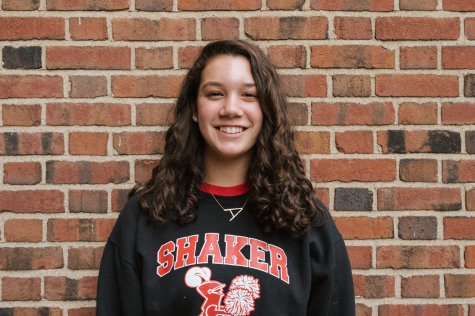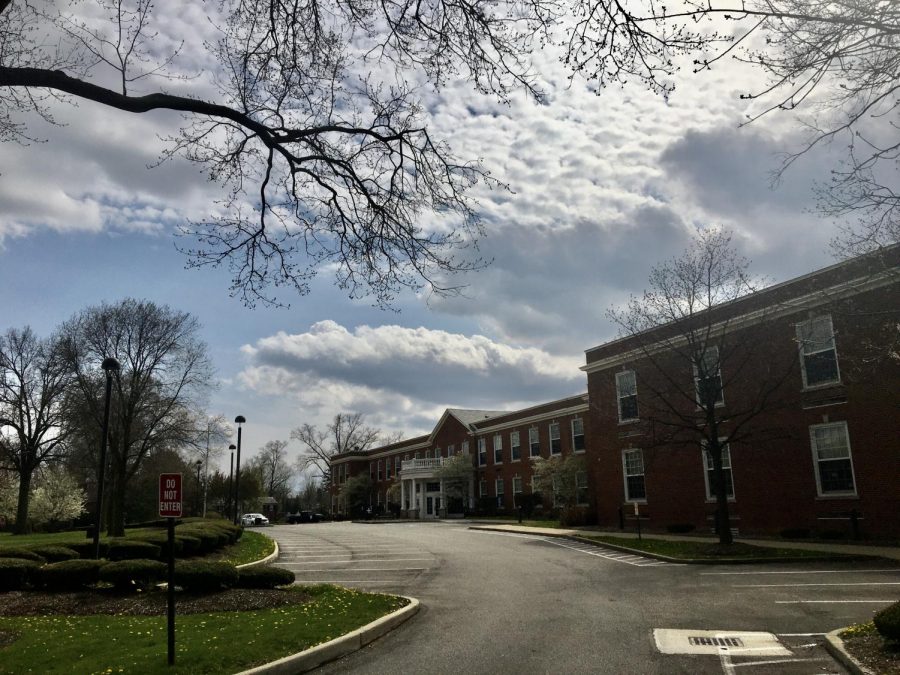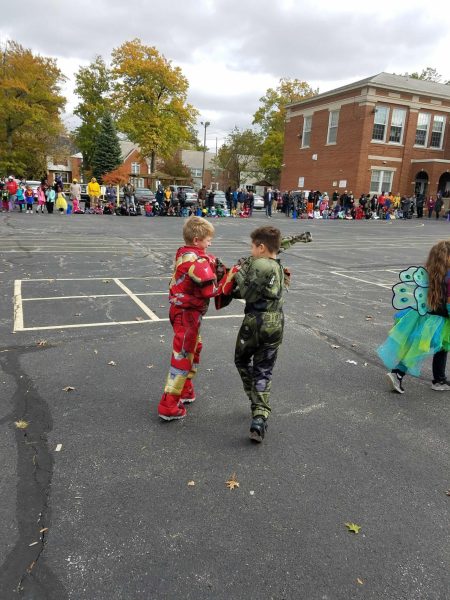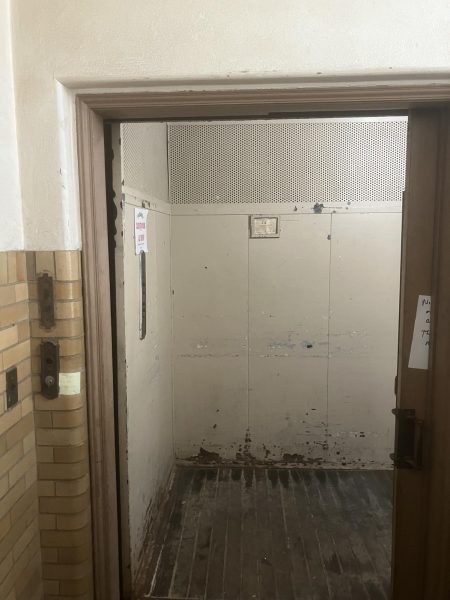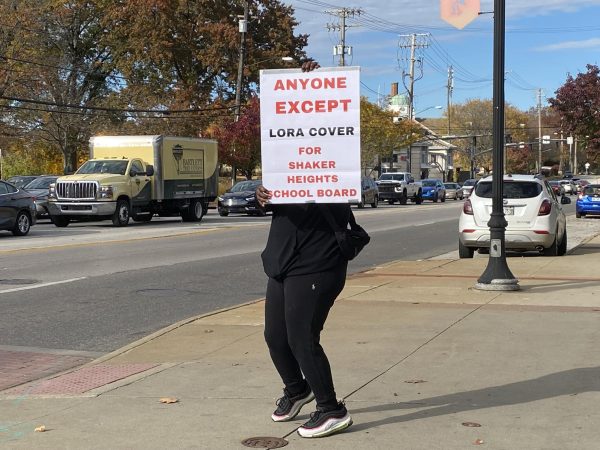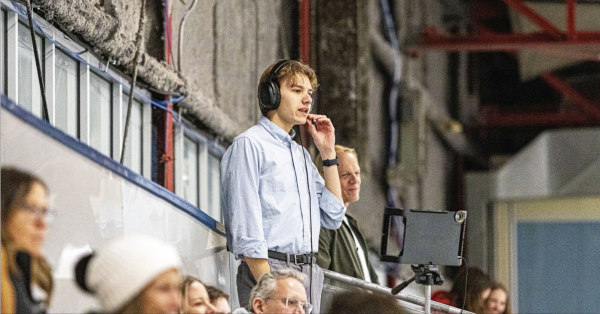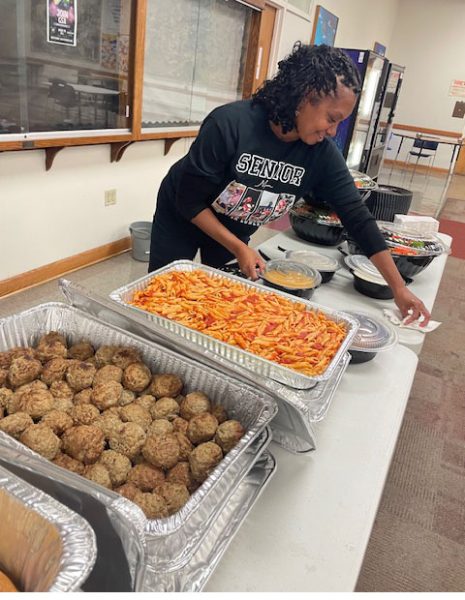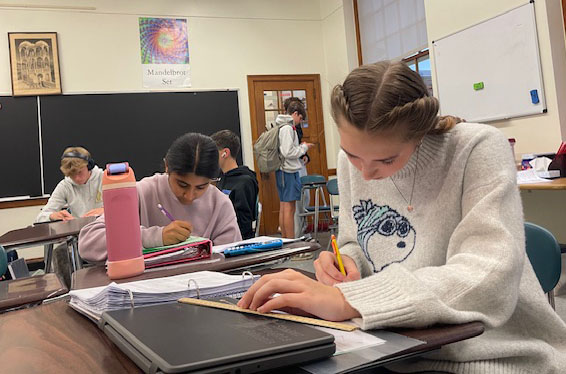District Revises 5-12 Grading Policy in Light of Pandemic
Shaker transitions to relaxed grading policy as distance learning continues through fourth quarter
The high school remains empty April 28.
The fourth-quarter grading policy for students in grades five through 12 has been changed to accomodate the stress of remote learning, and second-semester exams have been canceled.
In an email sent to Shaker families at 3:32 p.m., the district announced plans for schools to operate from a “hold harmless” stance — meaning to do no harm to students’ grades.
“Because we understand that remote learning is very different and is a transition for all of us, we are working to do all we can to support each of our students,” the email stated.
“Every week, as a district, we get better at virtual learning, and every week families get more and more stressed about what’s happening at their homes,” Principal Eric Juli said in an interview.
The policy change was discussed during today’s Board of Education special meeting. Dr. Marla Robinson, chief academic officer, said families have told her that their kids are unable to complete their online work. “We don’t want to be the cause of additional stress,” Robinson said.
Under the revised policy, students must still participate in online learning, but they cannot earn a grade lower than their first-semester grade. For semester-long classes, as long as they complete assignments, students’ fourth-quarter grade can be no lower than their third-quarter grade. The minimum grade on a completed assignment is 55 percent.
Juli said teachers can also exempt students from assignments if they need to. Students can still earn a passing grade for classes that are only held during the fourth quarter; such classes include Design at SMS. If a student failed their third-quarter class, the teacher can issue an incomplete and give the student the chance to pass the class by completing assignments now until the end of school.
“The majority of the teachers I have spoken to have seen that the effort here is to basically do no harm to the students and to acknowledge the work they’re doing in an unanticipated environment,” said Dr. John Morris, English teacher and president of the Shaker Heights Teachers’ Association. “Due to various factors, if it is not the same kind of work they could have performed in the classroom, that it doesn’t harm them.”
“Is it more important to get an 87 in your class than it is to be able to work to help support your family, if that’s what’s needed right now?” Juli asked. “I don’t think that it’s our place to say that.”
Junior Eliza Bennet said she likes the new policy. “I think it is very realistic for the type of situation that we are in, especially because before, I don’t know how the school expected for kids to get all this work done, because not everyone lives in the perfect home,” she said. “I live in a home where I am able to get my work done, but a lot of kids don’t. I think this fourth quarter is very realistic for our school.”
“We have families that have been furloughed,” Juli said. “We have families with parents who are in health care. We have families, parents that are working. We have families with students who are working full time, and so there’s a lot going on that we know about, and there’s a lot going on that we don’t know about.”
Freshman Alex Edelman said he likes the policy because it’s easy to get distracted from school work at home. “It gives you the opportunity to keep working but not affect grades too much,” he said.
The district email also stated that second semester exams are canceled.
Sophomore Ethan Bryant said he is glad that finals won’t occur. “I feel that taking them away is the best thing to do now that all learning is virtual,” he said.
“I was expecting the cancellation of finals, but I didn’t think students were going to get anything lower than they got in the first semester,” junior Michel Wilcox said. “Especially with testing, it is hard to see if students are cheating or are being academically responsible and using the knowledge they have learned.”
Students can retake any fourth-quarter assessments and will earn the higher score on any completed retake. If a student wishes to improve their third-quarter grade and is willing to complete the necessary work, they can do so under the new policy.
Students will also be allowed to submit late work for full credit.
“During a pandemic, we want to give every student as much of the benefit of the doubt as possible,” Juli stated.
Sophomore Jacob Feinleib said he thinks the new policy is fair to students. “Sometimes it’s hard to keep track of assignments across all of my classes, especially when events and notifications are scattered across Classroom, Remind, emails, etc.,” he wrote in a text message.
Bryant said the rule about late work will affect how he works. “I have lots of time to get work done, so I won’t have to cram and rush as much,” he said.
College Credit Plus classes — which are dual enrollment classes through Cuyahoga Community College — are to be as flexible as permitted by the college that sponsors the class.
Senior Dorothy Sabo takes CCP Composition and says she is not worried about receiving college credit. “I honestly think that people are being so understanding right now that I think we will be fine,” she said.
Courses taught at Shaker through a college do not follow the “hold harmless” policy. Teachers must follow the college’s guidelines.
Jessica O’Brien, who teaches an African American history class through Kenyon College, said Kenyon’s policies override Shaker’s new grading policy. “Everything that freshmen at Kenyon have to abide by, so do we,” she said.
The new grading policy does not affect K-4 students because the district does not assign grades to them. “With the way we do the primary report card already, it fits with that philosophy because we don’t give grades,” Robinson said during the BOE meeting. She said that teachers are communicating K-4 student progress and achievement to parents.
Bryant said he knows he is not the only one who would rather be at school. He said, “This is for the best and the administration is trying to adapt to this just like us students are.”
The Shakerite will continue to cover this story as it develops. Logan Cohen, Rachel Coxon and Hilary Shakelton contributed reporting.
Comment using your Facebook, Yahoo, AOL or Hotmail account
